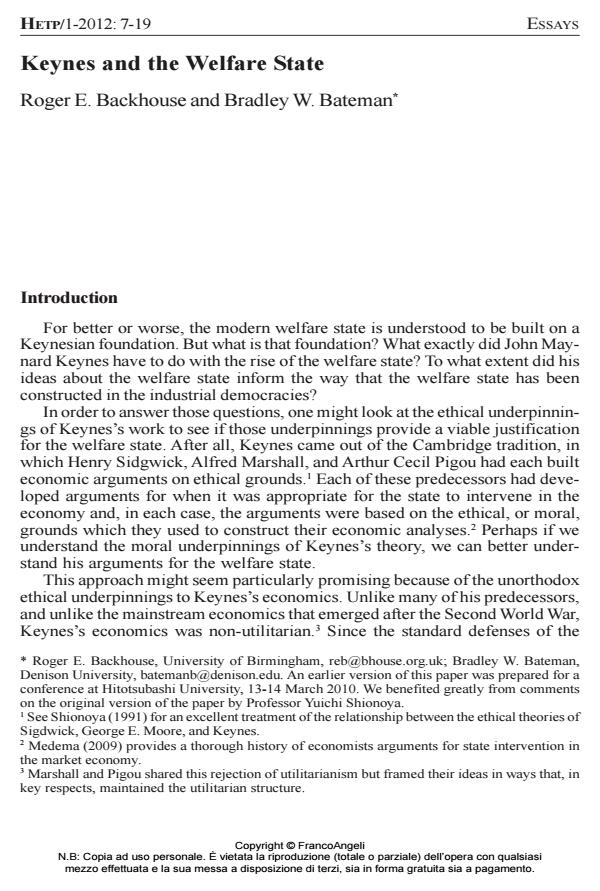Keynes and the Welfare State
Titolo Rivista HISTORY OF ECONOMIC THOUGHT AND POLICY
Autori/Curatori Roger E. Backhouse, Bradley W. Bateman
Anno di pubblicazione 2012 Fascicolo 2012/1
Lingua Inglese Numero pagine 13 P. 7-19 Dimensione file 84 KB
DOI 10.3280/SPE2012-001002
Il DOI è il codice a barre della proprietà intellettuale: per saperne di più
clicca qui
Qui sotto puoi vedere in anteprima la prima pagina di questo articolo.
Se questo articolo ti interessa, lo puoi acquistare (e scaricare in formato pdf) seguendo le facili indicazioni per acquistare il download credit. Acquista Download Credits per scaricare questo Articolo in formato PDF

FrancoAngeli è membro della Publishers International Linking Association, Inc (PILA)associazione indipendente e non profit per facilitare (attraverso i servizi tecnologici implementati da CrossRef.org) l’accesso degli studiosi ai contenuti digitali nelle pubblicazioni professionali e scientifiche
This paper considers the question of what influence J.M. Keynes had on the evolution of the welfare state after the Second World War. First it weighs whether his non-utilitarian approach to economic theory and welfare measurement had an impact on the growth of the welfare state. Then it considers whether the influence came through Keynes’s advocacy of deficit spending. After rejecting both of these explanations the role of full employment in sustaining the welfare state is weighed. The paper concludes with a consideration of what might be necessary in preserving the welfare state in the face of the recent financial crisis and the sovereign debt crises that have emerged subsequent to the crisis.
Parole chiave:Keynes, capitalism, welfare state
Jel codes:B31, E12, D63
- Gold Rush vs. War: Keynes on reviving animal spirits in times of crisis Michele Bee, Raphaël Fèvre, in Cambridge Journal of Economics /2024 pp.213
DOI: 10.1093/cje/beae001 - Power in Economic Thought Raphaël Fèvre, pp.321 (ISBN:978-3-319-94038-0)
- Economic Theories, Protagonists and Facts Maria Cristina Marcuzzo, pp.315 (ISBN:978-3-031-63948-7)
Roger E. Backhouse, Bradley W. Bateman, Keynes and the Welfare State in "HISTORY OF ECONOMIC THOUGHT AND POLICY" 1/2012, pp 7-19, DOI: 10.3280/SPE2012-001002